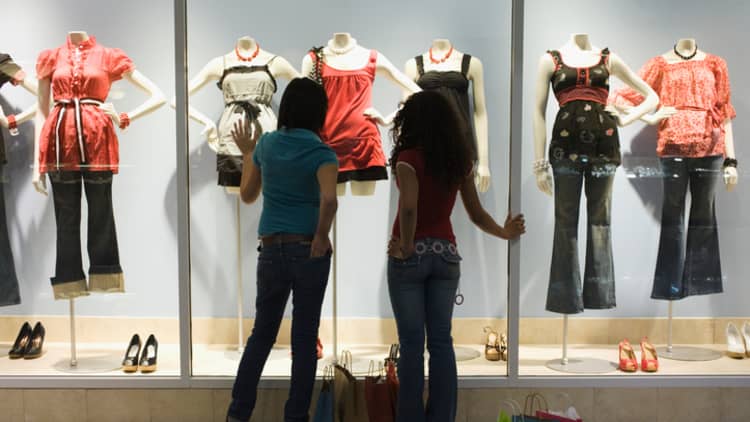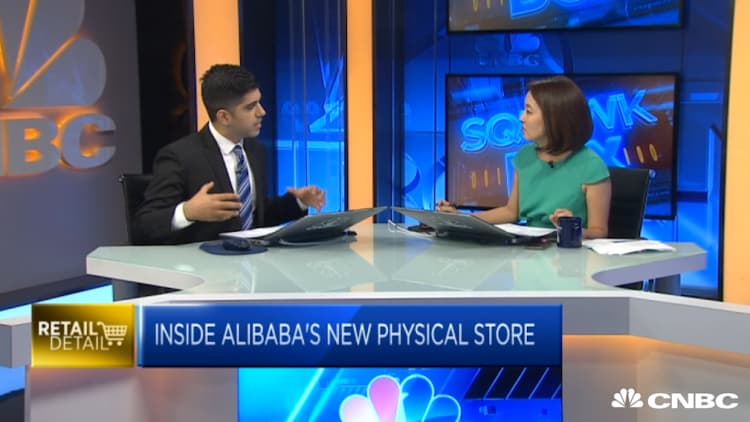When a tall, athletic-looking man stands at the door of a store, it actually encourages other men to spend more money than had the attractive assistant not been there. In fact, they spend double what women do.
This is according to a study by Professor Tobias Otterbring, working with other academics in conjunction with the Service Research Center at Sweden's Karlstad University.
The researchers looked at how much men and women spent when an attractive male employee stood at the entrance of a Swedish furniture store over a weekend.
The answer? The average spend for men was $165 when the attractive guy was present, more than double the amount for women, which was $72. When he wasn't there, men spent $92 and women $97, according to Otterbring in an article published in the Harvard Business Review (HBR). The man in the study was taller than 95 percent of the American population and was a former track-and-field athlete.
"We think this is because the physically fit male we used activated the classic male competitive instinct. We know that tall, athletic-looking men typically have greater success in economic and mating markets. So when male shoppers saw him, we suspect, they sensed a rival and responded by signaling their own status: they opened their wallets," Otterbring said. The athletic assistant also had proportionally more of an influence on men of a shorter stature.
As well as being drawn to more expensive products in the presence of a fit male employee, men were also keen on goods with larger logos. Men and women in a separate study were given photos of "physically dominant" and "physically non-dominant" men and asked to rank them out of five for attractiveness.
Then they were asked to imagine they were shopping for clothes and had to choose from a variety of logo sizes. The men who had seen the picture of the fit male picked significantly larger logos than those who had seen the average male. There was no difference in the choice of logo size for women.
"Because not all men can compete with a strong physique, an alternative way to signal status is through conspicuous consumption," the authors of the study, originally published in the Journal of Marketing Research, stated.

"Men buying such products and taking part in other forms of flashy displays often do so to show rivals that they can easily afford significant financial costs, thereby raising others' perceptions of their status," they added.
This could mean that flashy luxury brands might benefit from having attractive male salespeople, rather than female ones, the study suggested, and the impact could go beyond what happens in store. The logo part of the study, where people were shown pictures of men, was done under research conditions, rather than in store.
"This suggests that ads, commercials, or in-store displays featuring physically dominant spokesmen, such as professional athletes or male fitness models, could also increase male customers' motivation to consume status-signaling products," the authors wrote.

Indeed, Wrestler-turned-actor Dwayne Johnson's endorsement deal with Under Armour was recently ranked by consumers as the best-matched celebrity-brand partnership in the fashion and retail sectors, while the sportswear's tie-up with basketball star Stephen Curry also ranked highly.
"Retailers will have to decide for themselves whether it's a good strategic move to, say, assign a taller male employee to handle the account of a shorter male customer," Otterbring told HBR. "Maybe that would drive more sales in the short run. But it might also cause the short man to leave the store feeling unhappy and not come back, which wouldn't be good for business.
"Personally, I would never encourage any organization to hire staff members simply on the basis of looks. But that doesn't mean we shouldn't be aware of these superficial biases and understand how heavily they can influence consumption."

